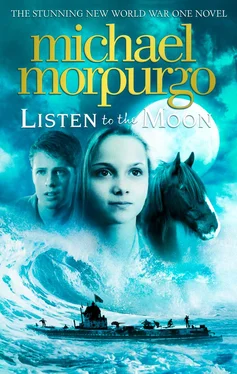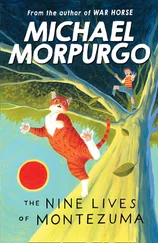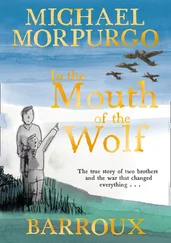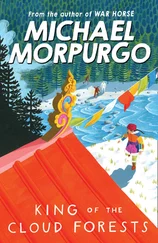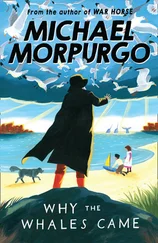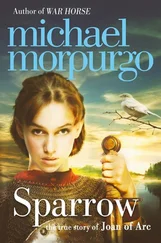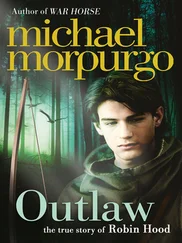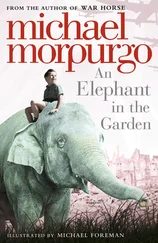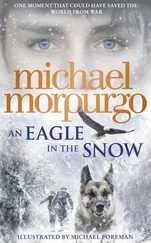She lay there at anchor as Jim walked to the fishing boat that morning, resplendent in green paint, ‘Hispaniola’ painted black on her side. She may not yet be finished, but the fine and elegant lines of her hull were evident now to anyone walking along Green Bay. And now with the main mast up, that Uncle Billy had raised only a few weeks before, she was looking almost complete. With no help from anyone – Uncle Billy liked to be on his own, work on his own – he had brought her back to life. Uncle Billy may be odd – that was the general view; a bit “mazed in the head”, they usually called him – but with the work he had done on that old lugger over the years, plain now for everyone to see, he had gained the respect of the whole island. He was still ‘Silly Billy’ though, because they all knew where he’d been, where he’d come from, because of how he was.
Walking across the sand on Green Bay, Jim could see Uncle Billy up on deck. He was running the black and white skull and crossbones flag up the mast, as he always had done every morning since the mast had gone up. He had on the Long John Silver hat that Mary had made for him, and he was singing. Uncle Billy had his ups and downs, his good days and his bad days. This morning he had the hat on and he was singing, so this must be a good day, which, Jim knew, would make life much easier for Mary. Uncle Billy could be a cantankerous old goat when he was in one of his black moods. And for some reason Jim had never understood, when he was like that, he was always nastier to Mary than anyone. Yet she was the one who had saved him, brought him home, and the person he loved most in the world.
It was because Jim was so busy admiring the Hispaniola , so preoccupied thinking about Uncle Billy, that he had not noticed until now that Alfie was out there, clambering about on Penguin , the family’s fishing boat, making her ready. He was untying her from the buoy, then rowing her in towards him over the shallows.
“What d’you think you’re up to, Alfie?” Jim protested, looking over his shoulder nervously. “If your mother sees you—”
“I know, Father, she’ll have my guts for garters – whatever that means,” Alfie said, with a smile and a shrug. “I missed the school boat. Real shame. You were there, you saw it go without me. Right, Father?”
Jim was unable to conceal his delight. “You are a very wicked boy, Alfie Wheatcroft,” he said, climbing into the boat. “Don’t know where you get it from. We’d better come back with plenty of good fish then, hadn’t we? Or my life, and yours, won’t be worth living.”
Out at sea, an hour or so later, they were fishing off Foreman’s Island. It had been a hard row for Alfie against the current all the way along Pentle Bay, and Jim could see he needed a rest. He took the oars from him and rowed over to check his lobster pots. Between them, they hauled up three good-sized crabs from the pots off Foreman’s Island – so, a crab for Uncle Billy, and two to sell – and there was a squid in one of the pots, which would do nicely for bait. And Alfie managed to catch a couple of pollock as well.
“Good for fishcakes,” Jim grumbled, “and not much else. Your mother don’t like pollock. We can’t come home with nothing but pollock. We got to find some mackerel.”
“St Helen’s,” Alfie said, reaching for the oars, and starting to row again. “They’ll be there, dozens of them, Father, waiting for us, you’ll see.”
It was a flat calm now, hardly a ripple on the sea, and the tide took them quickly towards St Helen’s. Wary of rocks, they came in with great care, Alfie rowing gently towards the shore, towards the only sandy beach on the island. Jim dropped anchor. This was where they had caught their mackerel, only a few weeks before, a dozen or more, and big fish too, all of them inside a few minutes. Maybe they’d get lucky again.
Both of them knew they would have to get lucky. Mackerel were like that. You could be out fishing all day right above them, and the line would come up empty every time. Or they’d be down there, begging to be caught, it seemed, and then they’d jump right on to your hooks and come up shining and silver and wriggling on the line. Jim remembered how delighted Mary had been with them before, when they came home with their great catch, and showed her, how she’d given them both the best of hugs, and told them there weren’t two other fishermen in the world like them.
Jim dropped his line into the sea. “Come on, fish,” he said. “Have a little nibble, have a little bite. Be good fish, be nice fish, and then Marymoo will give us more hugs, and tonight we’ll have the best supper of our lives. Come on, fish. What are you waiting for? I’m not going away till I get you, lots of you.”
“They’re down there,” said Alfie, peering into the water on the other side of the boat. “I can see them. Bet I catch one before you do, Father.”
It was a long while later that Alfie first heard it. Neither had caught a fish, nor even felt a suggestion of a bite. Both were silent, and deep in concentration. Alfie was sitting there, hunched over the line, gazing intently down into the clear blue-green of the sea below, the fronds of weed waving mockingly up at him. That was when he heard something calling. The sound seemed at once strange to him, out of place somehow, not right. Alfie looked up from his fishing. It came from the island, a hundred yards or so away, from somewhere near the shore, a soft cry, a whimpering. A seal pup perhaps. But it was more human than that.
“YOU HEAR THAT, FATHER?” Alfie said. “Just gulls, Alfie,” Jim replied. And, sure enough, there was a young seagull on the beach, scurrying along after its mother, neck outstretched, mewing, begging to be fed. But Alfie realised soon enough that wasn’t at all the sound that he had heard. He knew gulls better than any other bird, but he had never before heard a young gull cry like that. The crying he had heard was different, not like a bird at all, not like a seal pup either. It was true that gulls were known to be good mimics – not as good as crows, but good enough. Alfie was perplexed, and distracted now entirely from his fishing. The two gulls, mother and fledgling, lifted off the beach and flew away, the young bird still pestering to be fed, leaving the beach deserted behind them, but not silent. There it was again, the same sound.
“Not gulls, Father. Can’t be,” he said. “Something else. Listen!”
It came from somewhere beyond the shoreline altogether, from the direction of the old Pest House, or from the great rock in the middle of the island. Alfie was quite sure by now that no gull, however clever a mimic, could possibly cry like that. And then it came to him. A child! A child cries like that! Gulls didn’t cough, and Alfie could hear quite clearly now the sound of coughing.
“There’s someone there, Father!” he whispered. “On the island.”
“I hear it,” Jim said. “I hear it all right, but it don’t seem hardly possible. Can’t see no one there, nothing but gulls. There’s hundreds of them, and all watching us. Like I told you, Alfie, I don’t like this place, never did.” He paused to listen again. “Can’t hear nothing now. Ears playing tricks on us, that’s what it was. Got to be. Can’t be no one there anyway. I didn’t see no boat anchored off shore as we came in, and there’s nowhere else you can land on St Helen’s, except right here on this beach. This is an uninhabited island, deserted. No one’s lived here for years, for centuries.”
Читать дальше
